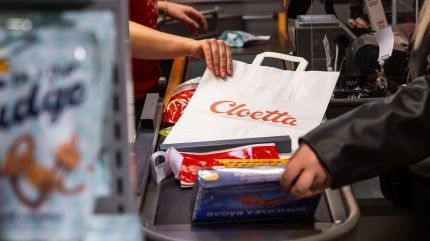
Cloetta’s recently installed president and CEO Katarina Tell has put on hold an investment in a new confectionery plant in the Netherlands.
The Sweden-headquartered owner of the Candy King pick-and-mix brand said the company is conducting a “reassessment” of the project and is exploring “alternative options to secure a more efficient manufacturing structure”.

Discover B2B Marketing That Performs
Combine business intelligence and editorial excellence to reach engaged professionals across 36 leading media platforms.
It cited the “increased risk relating to energy supply” for stalling construction of the facility, which remains in the phase of securing regulatory approval.
Publicly-listed Cloetta announced the project in 2022 as The Jelly Bean Factory brand maker simultaneously revealed the closure of three sites – one in Turnhout in Belgium and two at Roosendaal in the Netherlands.
The exact location of the site has never been disclosed. Questioned by Just Food at the time, Cloetta said the new plant was situated close to its existing facilities in the Netherlands.
Tell replaced the long-serving president and CEO Henri de Sauvage-Nolting at the start of September. He announced his retirement in January after trimming the pick-and-mix portfolio to cut costs in 2023.

US Tariffs are shifting - will you react or anticipate?
Don’t let policy changes catch you off guard. Stay proactive with real-time data and expert analysis.
By GlobalData“As the greenfield project is still in an early phase, investments have so far been relatively limited,” Tell explained.
“There remain opportunities in our existing manufacturing network to compensate for the volumes planned to be produced by the greenfield [site] in the mid-term.
“This is the right time to reassess if there are better alternatives to secure a more efficient manufacturing structure to support Cloetta’s long-term profitable organic growth and environmental footprint.”
Cloetta said the review, and the assessment of alternative options, is expected to be wrapped up by the end of next year’s first quarter.
Morten Falkenberg, the chairman of the Sportlife chewing gum brand owner, added that Cloetta, like many other food manufacturers, has “experienced exceptional inflation and increased geopolitical uncertainty, along with new energy supply issues in Europe”.
The project has been pulled despite Cloetta reporting an increase in second-quarter and year-to-date sales and profits in July.
Sales for the April-to-June period were up 2% at Skr2.04bn ($201.3m).
Adjusted operating profit climbed 16.2% to Skr222m, while net income rose 12.3% to Skr82m.
Over the six months, sales increased 4.1% to Skr4.1bn, with adjusted operating profit 5.9% higher than a year earlier at Skr414m.
Net profit climbed 37% to Skr189m.
Tell had moved up the ranks from president of Cloetta’s business in Sweden having joined the company in 2018.
She contributed to the second-quarter results commentary.
“When operational, the production facility will create capacity for growth and significantly reduce cost, while also reducing greenhouse gas emissions,” Tell said of the plans for the new site.
“The greenfield will be a key contributor to secure and improve on the delivery of our long-term profitability target. When fully operational, the facility will be the first major candy plant running on renewable electricity in Europe.”
Those targets include a medium-term EBIT margin of 5-7% for Cloetta’s pick-and-mix segment, the biggest contributor to sales, and a long-term group net debt to EBITDA ratio of 2.5 times.
The latter was already at 1.8 times by the end of the second quarter, while the EBIT margin stood at 7.7%, down 1.4 percentage points.



